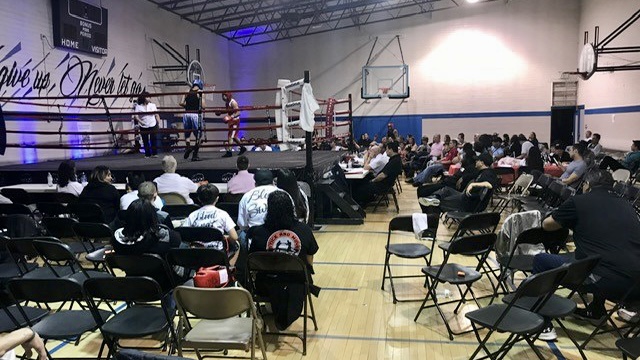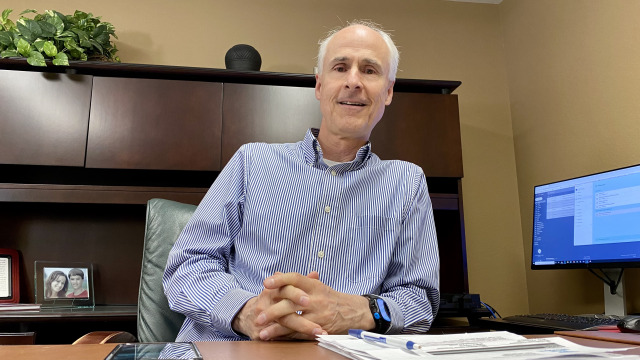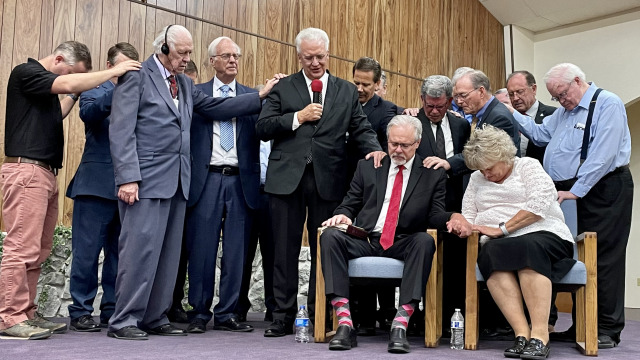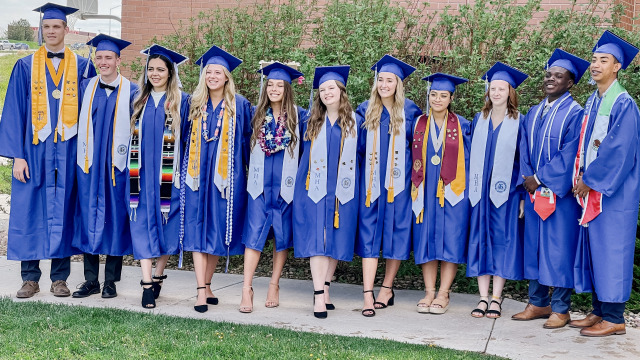By Amy Thompson – Denver, Colorado … Caregivers at Centura – Porter Adventist Hospital know that serving their communities goes far beyond treating patients who come to their facilities seeking care. Reaching out to connect with their patients, neighbors and communities and advocate for all aspects of their wellbeing—mind, body and spirit—is a vital part of delivering whole health care.
Located in Denver, Colorado, Porter Adventist serves a diverse range of communities, from affluent neighborhoods to underserved areas of the city in which crime, gang activity, substance abuse and domestic violence are common. Many in these communities’ struggle with hunger, unemployment, access to health care and access to behavioral health services. Recognizing the inherent worth of every life, Porter Adventist and local community partners advocate for the people of these communities and provide preventive services that address crucial issues at their roots.
“We are committed to identifying the immediate, actual needs of the people we serve and working together with others in our communities to make a real and lasting impact in those areas,” said Jim Feldbush, director of Mission Integration at Porter Adventist. “Working with the county health department, we have discovered that mental health and food security are two of the biggest needs in our communities, and we partner with local organizations who are the experts in meeting those needs to help them facilitate their work.”
Prevention and intervention
A long-standing partnership with Denver Inner City Parish (DCIP) has helped to provide for those in need for the past 60 years, including hunger relief, education and employment programming, senior care and spiritual support. Through his collaboration with DCIP, Feldbush forged a new partnership with Leo Alirez, a dynamic community leader who uses DCIP as home base for work that is transforming lives in the neighborhoods around Porter Adventist.
A former gang member, Alirez spent three years incarcerated, where he successfully completed a substance abuse rehabilitation program and vowed to start a new life. He now holds a bachelor’s degree in addictions, a Ph.D. in human services, is a Certified Addictions Counselor and licensed with the National Gang Crime Research Center. For the past three years, he has served on Denver’s Crime Prevention and Control Commission, working to prevent criminal behavior and leading a team that intervenes when violence erupts, connecting both victims and perpetrators with ongoing services and support.
At the core of Alirez’s life-changing work is Life-Line Colorado, a nonprofit he founded with the goal of assisting at-risk individuals in finding love, acceptance and safety. Life-Line Colorado provides a broad array of services to youth and adults, including counseling, mentoring, case management, substance abuse treatment, gang disengagement, life skills education and job readiness training. Many of Alirez’s caseworkers are themselves former gang members whom he has helped to change the path of their own lives, and they are now working to lead others down a similar path of healing and renewal.
Behavioral health has long been a priority for Porter Adventist, which offers both inpatient and outpatient behavioral health services. Efforts like those of Life-Line Colorado are a vital part of that work, helping build connections with community members Porter Adventist might not otherwise be able to reach and in many cases providing support before they reach a point of crisis.
“The children who live in these neighborhoods may go through more in a single day than many of us have to worry about in a lifetime, and there’s a direct connection between those stressors—childhood trauma, abuse, hunger, broken homes, losing a parent, being recruited into gangs—and mental health,” Feldbush said. “Our partnership with Leo helps relieve some of these stresses, teaches coping strategies and life skills to help break the cycle, and ultimately facilitates healing.”
For the past five years, Porter Adventist has collaborated with Life-Line Colorado to sustain these prevention and intervention efforts. This partnership has included simple events which, planned and timed strategically, can have a big impact. For example, all-night youth lock-ins featuring basketball tournaments and video games are held on dates like Halloween and New Year’s Eve, when gang activity is particularly high, and provide safety, community and a network of support including life skills education and leadership training for youth who are at high risk of being recruited by gangs. Similarly, a boxing league engages youth and young adults and teaches them to channel their anger and aggression and build discipline to help them find healing, stability and hope.
“It takes a community effort to change the community. We can’t do this by ourselves. None of us could on our own,” Feldbush said. “It’s incredible to know there are so many others who are working together toward our shared goal. When many organizations partner together, we can make real change happen.”
— Amy Thompson, writer for Centura Health; photo supplied
This article was originally published in Outlook Magazine




